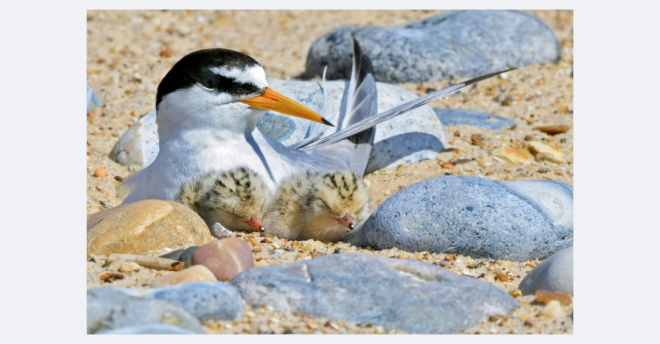RSPB Scotland react to launch of Scottish Seabird Conservation Action Plan consultation

On Wednesday, the Scottish Government launched its Scottish Seabird Conservation Action Plan consultation at the Scottish Seabird Centre in North Berwick.
RSPB Scotland is calling on people to respond to the consultation and speak up for Scotland’s seabirds, which have suffered dramatic declines in recent decades.
Scotland hosts internationally important populations of seabirds, including 60% of the global population of Great Skuas and nearly half (48%) of the world’s Northern Gannets.
However, seabird numbers in Scotland fell by a staggering 50% between 1986 and 2019 while the most recent comprehensive assessment of seabird numbers taken between 2015 – 2021 found that 70% of seabird species in Scotland are in decline.
Climate change impacts (including warming sea temperatures and severe weather), predation by invasive species, lack of food and human activities (including offshore marine renewables and fisheries) are identified as the main drivers of these devastating losses, which are the worst declines ever recorded in Scotland’s seabird populations.
It is all the more worrying that the assessment was made before the significant impact of Highly Pathogenic Avian Influenza (HPAI/Avian Flu) had occurred, further adding to concerns over the health of populations that were badly hit by the disease.
Urgent action is vital if we are to turn the fate of many of our most iconic species, including the beloved Puffin whose numbers declined by 32% in Scotland between 2000 and 2021 and are threatened with global extinction.
Earlier this year five more seabirds were added to the UK’s Red list of greatest conservation concern, meaning they are at risk of being lost from our skies.
Anne McCall, Director of RSPB Scotland, said:
“It’s great to see the Scottish Seabird Conservation Action Plan being launched today as our seabirds face a crisis that demands immediate action if we are to help them recover and flourish.
“With 70% of Scottish breeding seabird species in decline and five being added to the red list seabirds are battling multiple threats and are at the mercy of human made impacts.
“These pressures need to be tackled with urgency, ambition and importantly underpinned by robust investment for our seabirds to thrive.
“As home to over half the UK’s seabirds, Scotland is also globally important for many species making the responsibility all the greater.”
An e-action launched by RSPB Scotland asks supporters to call on the Scottish Government to implement vital measures to bring Scotland’s beloved seabirds back from the brink.
It states that the final plan must include vital measures to protect prey fish supplies, end the ongoing bycatch of seabirds by fisheries, clear Scottish seabird islands of invasive predators, protect the most important areas for seabirds on both land and sea, as well as ensuring that marine planning delivers positive outcomes for nature and climate.
The consultation is open until March 4 and is available here.
Image Credit Kevin Simmonds RSPB
About the RSPB
The RSPB is the UK’s largest nature conservation charity, protecting habitats, saving species, and helping to end the nature and climate emergency. For over a century we’ve acted for nature through practical conservation and powerful partnerships, campaigning and influence, and inspiring and empowering millions of people, including almost 1.2 million members. Our network of over 200 nature reserves sits at the heart of our world leading science and conservation delivery. Nature is in crisis, but together we can save it.
The Royal Society for the Protection of Birds (RSPB) is a registered charity.
In England and Wales, no: 207076. In Scotland, no: SC037654.



